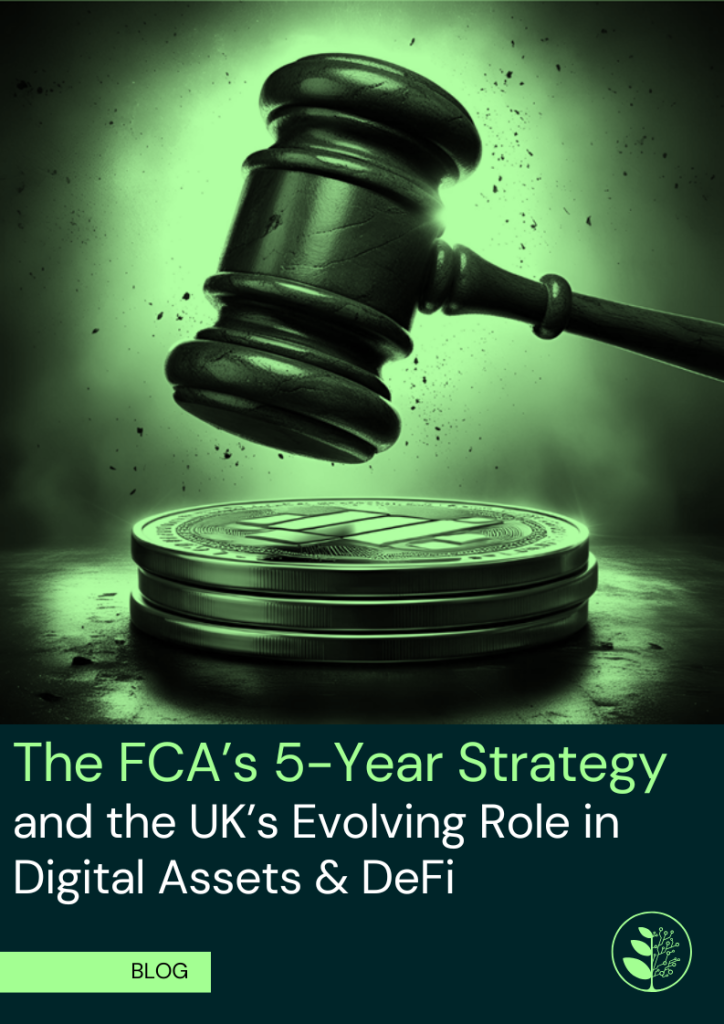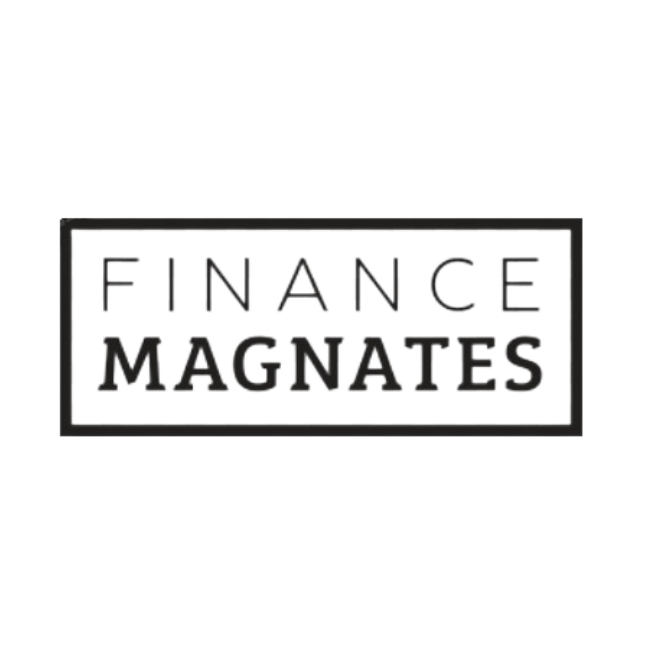
Featuring insights from Lord Chris Holmes, guest of Episode 25 of The Gage – an award-winning podcast series by Greengage
The evolution of digital finance systems has led UK regulators to establish clearer positions in their oversight strategy. In 2023, the Financial Conduct Authority (FCA) published its five-year strategy, which outlines the United Kingdom’s approach toward decentralised finance (DeFi) and tokenization, together with digital assets over the next five years.
The document’s shift toward regulatory structure prompts an evaluation of the UK’s potential to become a global leader that strikes an innovative balance between regulatory standards.
During Episode 25 of The Gage, Sean Kiernan, CEO of Greengage facilitates a profound discussion with Lord Chris Holmes, who serves as a House of Lords member to examine AI integration with blockchain technology and legislative procedures in the United Kingdom.
Conservative Caution to Constructive Engagement
The UK’s common law system is built on legal principles and past court decisions rather than rigid rules. This principle-based approach allows laws to evolve over time through interpretation, which makes it especially useful for fast-moving areas like AI and digital assets.
Instead of needing new laws for every innovation, the FCA (Financial Conduct Authority) can apply existing principles such as impartiality, transparency, and accountability to new technologies as they develop.
Building on this flexible legal foundation, the FCA has maintained a strategic and risk-driven approach toward crypto and blockchain for many years with main priorities focused on financial crime prevention and market integrity alongside consumer protection.
The organisation has transformed its approach through its current strategy by recognising digital assets are here to stay and require carefully planned collaboration for regulation.
As Lord Chris Holmes puts it on The Gage: “It’s time to act. It’s time to lead. It’s time to put our legislative stake in the ground.”
The new FCA approach demonstrates guidance as it seeks to prevent excessive regulatory intervention, along with international standards represented by MiCA while enforcing the US digital asset Executive Order.
The United Kingdom distinguishes itself from other legal systems through its common law system that enables principle-based legislation to adjust naturally during periods, according to Lord Chris Holmes. “We have a unique opportunity in the UK to legislate in our great common law context… agile, with the ability to adapt through precedent and case law.”
Creating Room for DeFi and Tokenization
The FCA’s strategy demonstrates profound impacts on its approach to both decentralised finance and tokenised real-world asset development.
The Financial Conduct Authority (FCA) prefers to observe and consult about specific rules for decentralised networks instead of immediate enforcement. They use regulatory sandboxes and innovation pathways as testing methods instead. This is consistent with the broader UK government approach: engage early and legislate prudently. Lord Chris Holmes sees potential in this moment. Speaking on the podcast, he remarked: “It’s not about stifling innovation. These technologies—AI, blockchain, digital assets—are incredibly powerful. But we must ensure we’re getting public good from them. An ‘inclusive by design’ approach is one of the chief ways of achieving that.”
The values of Greengage centre on developing trustworthy, innovative financial technology that offers security for society’s entire structure.
A Model for Future Regulation: AI, DLT and a Common Thread
The 5-year FCA strategy operates independently within a broader national shift. The shift represents one aspect of systemic regulatory changes that Westminster institutions lead and which spread through UK institutions across the nation. Through Episode 25, Lord Holmes introduced the six-page AI Regulation Bill that aims to create basic principles to regulate artificial intelligence systems.
According to Lord Chris Holmes, the domains of AI and DeFi share common traits—both are fast-evolving, disruptive, and don’t fit neatly within existing laws.
Both raise questions around accountability, consumer protection, and systemic risk, which means regulation must not only be robust—it must also be flexible and forward-looking.
Lord Chris Holmes argues that the UK’s common law system offers a flexible foundation for regulating new tech. His AI Regulation Bill proposes a principle-based, tech-neutral approach that can evolve over time.
“We have the opportunity to do something both differentiated and interoperable,” he says. “To lead in a way that’s rooted in our traditions of common law, but fully engaged with international standards and the technological future.”
The Case for an Independent Digital Regulator
On the Gage, Lord Holmes presents a sound argument for forming an independent AI regulatory body that provides a framework to better control digital assets and DeFi products. The government maintains that all existing regulatory bodies will handle the duty for AI oversight, according to its explanation. It would be smarter to create an adaptive regulatory body with independent status that reviews both regulatory abilities and legislative importance throughout various sectors. For blockchain and DeFi to succeed optimally in the UK, there should be an independent oversight authority that regulates digital innovation spanning AI and digital assets and smart contracts.
The Commonwealth Advantage and Global Opportunity
Lord Chris Holmes advocates for UK regulatory policies to function as a model that can unite Commonwealth nations by utilising their legal foundations and cultural compatibility for digital innovation across borders. “If we get this right,” he says, “we’ll have common language, common law, and legislation as legal code. Combine that with technology code, and that’s an incredibly powerful, positive force for connection.”
Greengage aims to connect traditional finance with the digital asset world by offering relationship-driven e-money accounts and a B2B digital lending platform. We deliver these services through global partnerships, grounded in strong regulations and the highest ethical standards.
Conclusion
This five-year strategy of the FCA marks a fundamental turning point for UK regulatory practice through its transition from traditional surveillance methods toward purposeful engagement in digital financial systems. The constant advancement of technology through DeFi, alongside blockchain and tokenized assets motivates regulators to transcend binary risk management systems toward an advanced future-oriented perspective. The present moment creates an unusual opportunity for all industry leaders, entrepreneurs and innovators to develop framework systems that combine functionality with fairness while supporting sustainable growth.
Greengage believes that strong regulation is essential for building public trust, especially at a time when technology is advancing faster than most people can fully understand. In Episode 25 of The Gage, Lord Chris Holmes highlights that digital technologies demand their power should serve public welfare. The effort goes beyond technical mastery into three essential areas [clear transparency, ethical intent, and active collaboration] that demand moral intentions combined with designed transparency along with cooperative work between policymakers and builders and their regulatory counterparts. Greengage is uniquely positioned in this space, not just by using digital assets, but by focusing on responsible adoption that aligns with regulatory standards and prioritises client protection.
Blockchain technology presents promising solutions for areas like trade finance and SME lending, while tokenization opens up new ways to access capital by enhancing liquidity. However, turning these innovations into reality depends on the presence of supportive legal frameworks and smart, adaptive regulation. The FCA’s evolving approach—combined with the flexibility of the UK’s common law system and its global reputation in finance and responsible innovation—positions the UK to become one of the safest and most forward-thinking jurisdictions for digital finance.
At Greengage, we combine responsible financial solutions with cutting-edge technological innovation to deliver secure, compliant, and forward-thinking solutions for the digital asset economy, so they fulfil both FCA’s future goals and rising customer needs in the new digital sphere. As the regulatory landscape evolves, we are uniquely positioned to help clients navigate change with confidence and provide businesses with a trusted financial services built on transparency and inclusion.
If you would like more information on our services contact us at info@greengage.co.
To learn more, listen to our podcast series, The Gage Episode 25.












